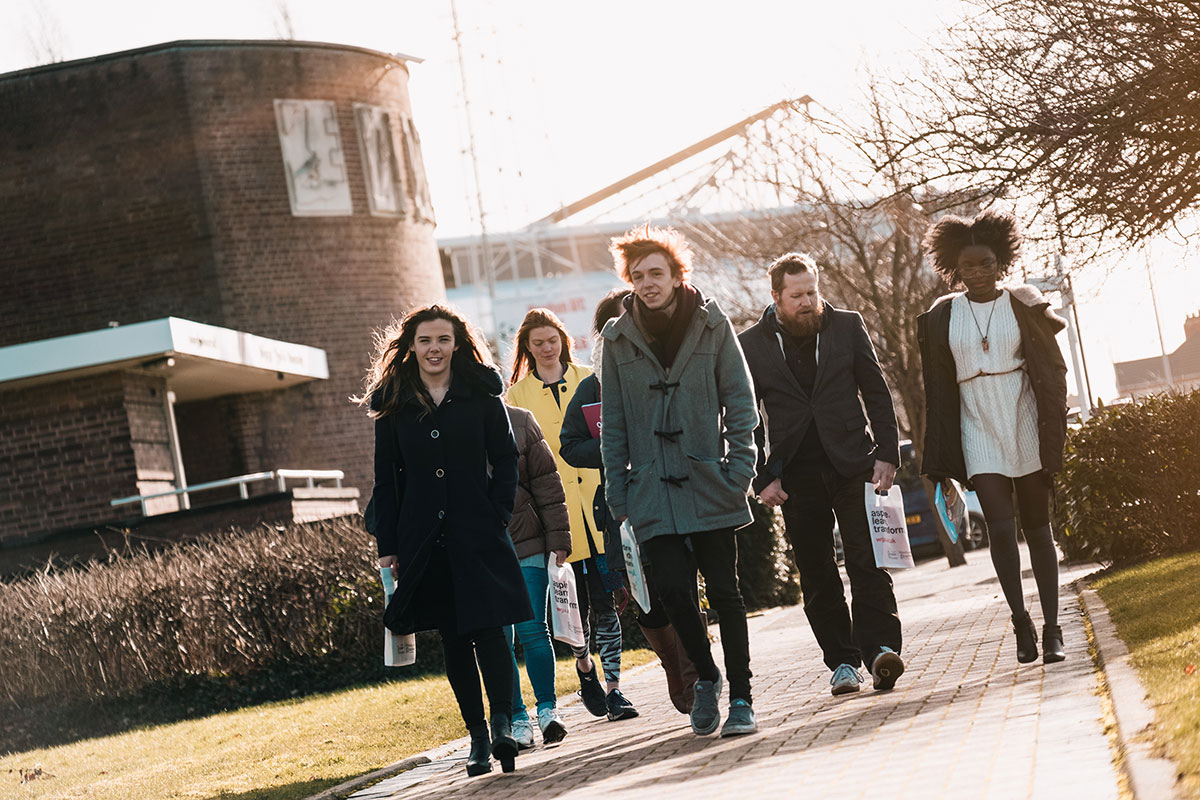Names Around Campus – Who Were They?

So many names are familiar to us from walking around Wrexham University campus. While you might know where the Nick Whitehead Theatre is, do you know who he was? Here’s a who’s who of some of our buildings’ namesakes.
Nick Whitehead Theatre - Who Was Nick Whitehead?
Neville Joseph 'Nick' Whitehead was born on 29 May 1933 in Brymbo, Wrexham. A sprinter, he was part of the Great Britain 4 x 100 metre relay team who won bronze in the 1960 Summer Olympics in Rome, and the Commonwealth Games in Perth, Australia in 1962.
He lectured in Physical Education at Carnegie Physical Training College in Leeds, now part of Leeds Metropolitan University, and eventually became Director of Development at the Sports Council for Wales (now Sport Wales). He received an OBE in 1985.
In 2001 his contribution to local sport was recognised when Wrexham University awarded him an Honorary Fellowship. He helped to develop the sports faculty at the University, and the lecture theatre was named in his honour following his death in 2002.
The Goldstein Library – Who Was Leonard Goldstein?
Born in Brooklyn, New York, in 1922, Leonard Goldstein studied at the Universities of Iowa and Wisconsin before the Second World War. He was a soldier with the first American troops to enter Nagasaki after the dropping of the atomic bomb, an experience that stayed with him throughout his life.
After the war, he studied an MA at the University of Washington, followed by a PhD from Brown University, in Providence, Rhode Island. The onset of McCarthyism made it difficult for him to work as an academic in the USA due to his left-wing views.
In the 1960s, he left the USA and settled in Berlin, in the former East Germany, and taught English Literature in Potsdam University up until his retirement in 1987.
He and his wife Marilou moved to Kentish Town in the early 1990s, where he remained for the rest of his life.
Wrexham University’s former Vice Chancellor Professor Michael Scott met with Professor Goldstein several times while he lived in London, and Goldstein decided to leave his library to the University.
The former Plas Coch Hostel was refurbished to house the bequest, which includes 13,000 books, mostly literature and social and political history, but including texts on topics as diverse as photography, architecture, crime fiction, theology and philosophy. Around one third of the collection is in German.